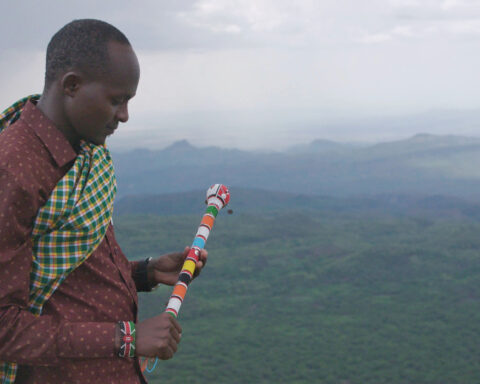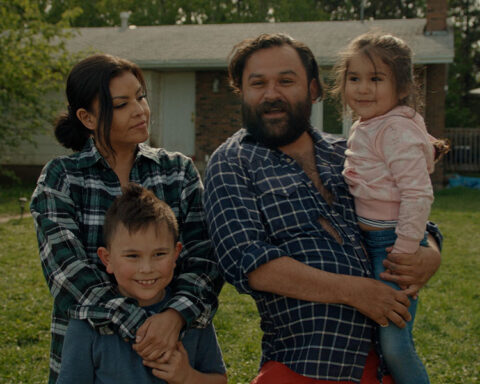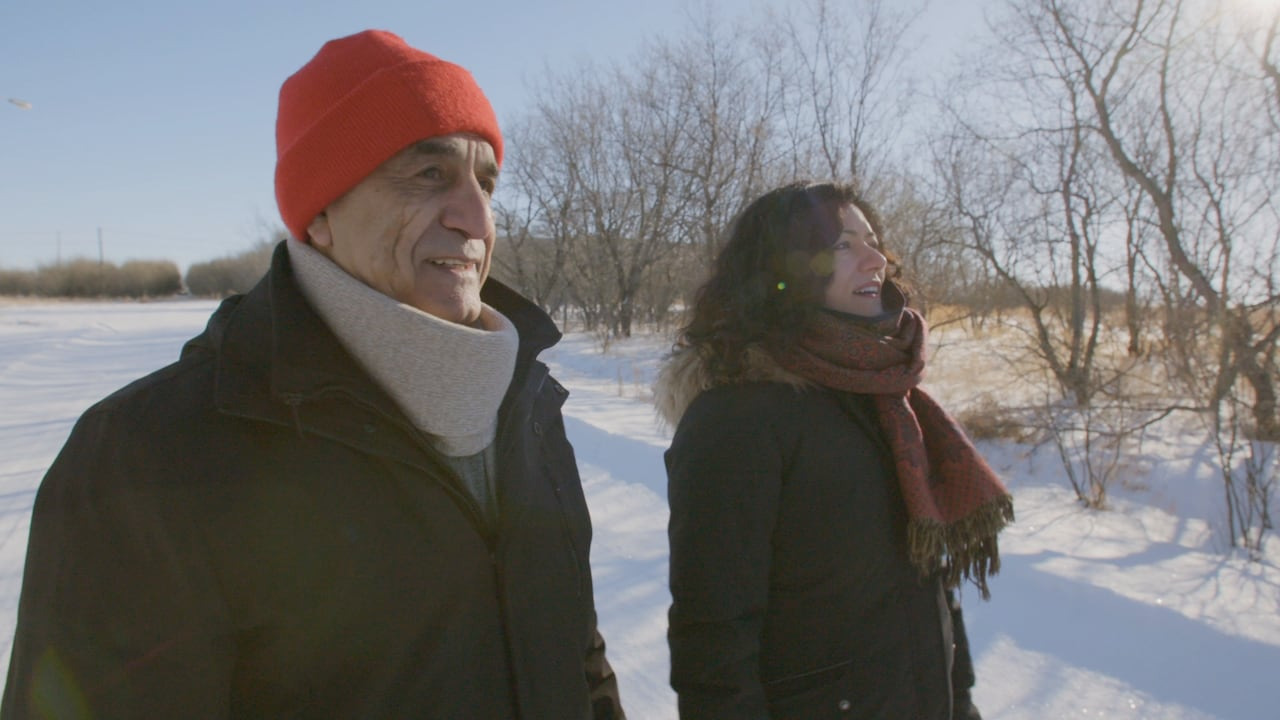One Day in the Life of Noah Piugattuk
(Canada, 113 min.)
Dir. Zacharias Kunuk
One Day in the Life of Noah Piugattuk is a comedy of manners that is no laughing matter. The latest film from Zacharias Kunuk (Atanarjuat: The Fast Runner, Maliglutit) sees Inuit-settler relationships humorously and tragically lost in translation. The film observes Noah Piugattuk (Apayata Kotierk) as he leads members of his community both young and old on the seal hunt his ancestors enjoyed. But when a white man interrupts the clan’s merriment on a mission to persuade Noah to move to a settlement in Igloolik, Kunuk realizes an encounter that speaks volumes. Through the nuances of languages and the complexity of translating ideological concepts into tongues that lack words to express them, Kunuk’s film poignantly observes a pivotal historical moment on levels both micro and macro.
Piugattuk essentially offers a one-act structure bookended by a preface and coda. Noah’s day begins as he eats and drinks tea in his shack. He mumbles to his wife about wanting sugar for his warm drink, but otherwise he begins the day by sitting in contented silence. The main event of the film sees Noah embark on dog sleds with his neighbours. After much mushing, nibbling on fish, and savouring the day, they’re interrupted by the arrival of a boorish white man, played by Kim Bodnia from Killing Eve, introduced simply as “the Boss” by their friend Evaluarjuk (Benjamin Kunuk) who works as his translator. He sports a chest full of sugary goodies to appeal to the Inuit, but the revolver on his hip says more about his intentions and presence.
The Boss wants Noah to agree to move in the settlement and, through Evaluarjuk’s translation, tries to entice him to provide a firm “move-in date.” He baits Noah with offers of a wooden shack (rented at two dollars a day when Noah pays nothing on current abode) in exchange for being near his children as they attend mandatory schooling. Some of the Boss’s propositions are lost in translation, though. Evaluarjuk tries to simplify the language, or perhaps doesn’t entirely understand the terms the Boss utters and remains deferential while conveying the gist of things to Noah.
More frequently, the expressions and words don’t translate cleanly. Like “money,” which many of the Inuit listening to the conversation fail to grasp. It’s an alien term. Other exchanges see the balance of power subverted through language. Evaluarjuk and Noah refer to the Boss as Isumataq, which means “boss,” but, as Kunuk notes in his director’s statement, translates literally to “he-thinks-for-us.” Even though Noah and company don’t entirely understand what the Boss is trying to sell them, they’re on to his game.
This conversation plays out in real time and clocks in at nearly an hour long. Piugattuk is slow even by the methods by which one gauges Kunuk’s measured madness. Kunuk’s mastery of slow cinema finds an asset in his gift for language as the exchange between Noah and the colonizer unfurls at an infuriatingly glacial pace.
Kunuk’s films frequently favour silent expressions and use the power of the land and the culture to convey their significance. Piugattuk is a much talkier affair than his other films are and it highlights his gift for language. In conveying the frustrating circular dialogue between Noah, the translator, and the Boss, the script by Kunuk and Norman Cohn illustrates the transactions with which settle culture barrelled its way through the lands, lives, and cultures of Indigenous people. There is no exchange as the Boss repeats his questions over and over, raising his voice and changing his tone hoping that Noah will simply concede defeat.
Moreover, there’s an obvious elusiveness to the language the Boss uses in this day in the life of Noah Piugattuk in 1961. His references to “the schools” and his offers of support are viciously vague promises. They’re downright predatory in their emissions when we know what fates awaited Noah’s children and countless others.
Buoyed by an endearing and compelling performance from Kotierk in the title role, One Day in the Life of Noah Piugattuk is a valuable portrait of resilience. While Kunuk’s previous films have drawn more on elements of myth or Hollywood tropes with slice-of-life realism bringing them to life, Piugattuk favours a stronger docu-drama approach. Kunuk’s verité style resurrects true figures and the stories that the real Piugattuk passed on to future generations. Shot on the same land where Piugattuk enjoyed his nomadic life until relocating to the settlement to gain the meagre government cheques, the film honours his life, and those of the Inuit community. One Day in the Life of Noah Piugattuk returns its hero to his land and reasserts the values that Noah articulated so eloquently and patiently, but fell on deaf ears.
One Day in the Life of Noah Piugattuk opens the imagineNATIVE Film and Media Arts Festival on Oct. 22.
It is also available on iTunes.












